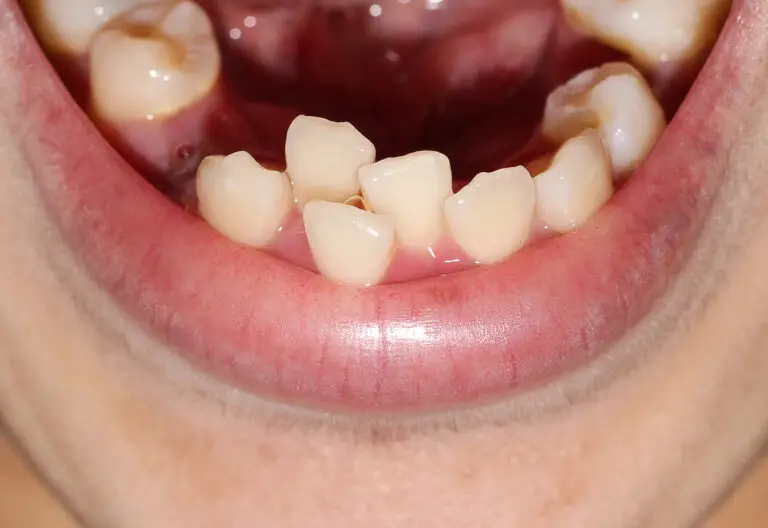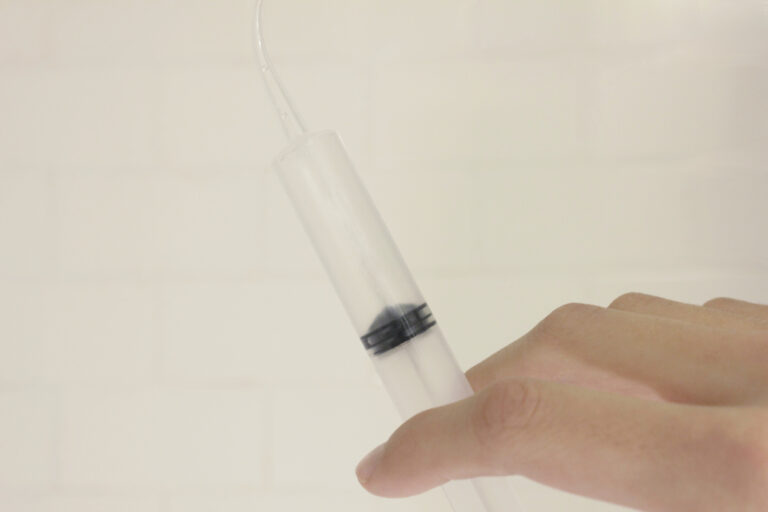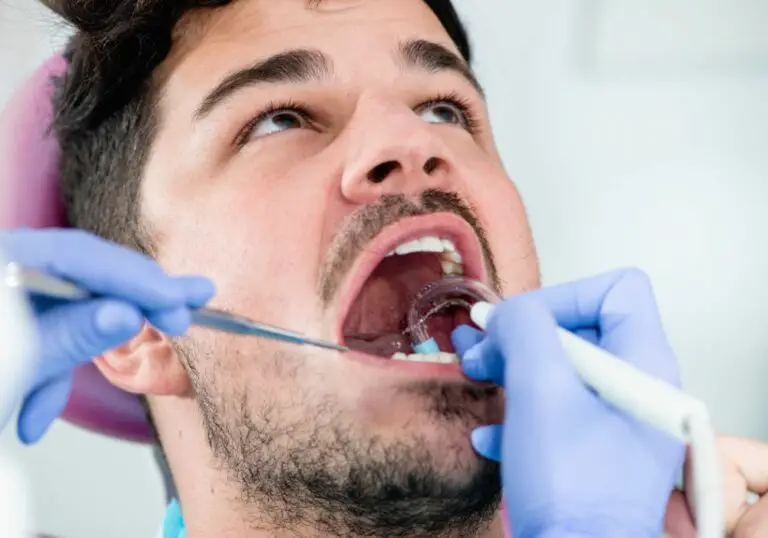For many people, teeth are a major source of insecurity. Having issues with our teeth can make us self-conscious about smiling, laughing, and even just talking. Our teeth play an important role in our appearance and how we present ourselves. Flaws or problems with our teeth can take a major hit to our confidence and self-esteem.
In this article, I’ll take a deep dive into the various reasons people often feel insecure about their teeth. I’ll also explore the psychological effects dental insecurities can have, and provide suggestions for starting to overcome these insecurities. My goal is to bring more understanding to this widespread issue and provide hope for achieving a smile you feel confident about.
Common Causes of Dental Insecurities
There are a wide range of factors that can negatively impact how we feel about our teeth, ranging from minor cosmetic issues to significant oral health problems. Here are some of the most common sources of teeth insecurities:
1. Crooked, Gapped, or Misaligned Teeth
One of the top reasons people feel insecure about their teeth is having crooked, gapped, or noticeably misaligned teeth. Even slightly crooked teeth can make us feel like our teeth are imperfect. When our teeth overlap or have gaps between them, it impacts the symmetry of our smile.
Having properly aligned teeth is associated with beauty and competence. In contrast, crooked or gapped teeth may cause others to make unfair assumptions about us, such as thinking we don’t take care of our oral health. It’s no wonder this can make us self-conscious and reluctant to show our teeth.
While genetics play a major role in tooth alignment, thumbsucking or habits like tongue thrusting can also impact alignment. Losing teeth and failure of permanent teeth to come in properly can also leave gaps that contribute to a crooked appearance.
Braces are often needed to correct overlapped or gapped teeth, but are a lengthy and expensive process. For adults, clear aligner therapy provides a more subtle approach to straightening teeth over time. But costs may still be prohibitive, leaving someone feeling stuck with the teeth they have.
2. Discolored, Yellow, or Stained Teeth
Another major dental insecurity is having discolored, yellowed, or stained teeth. Our society puts major emphasis on having white, bright teeth. Whiter teeth are associated with not just dental health, but also attractiveness, friendliness, social status, and professionalism.
But there are many factors that can lead to teeth discoloration, making it a common issue:
- Genetics and enamel issues that cause off-white or yellowish teeth
- Medications like antibiotics that affect tooth color
- Food and drink like coffee, tea, wine, and soda that stain teeth over time
- Smoking or chewing tobacco products leads to severe staining and yellowing
- Aging and thinning enamel makes teeth become more yellowish
- Trauma to teeth can cause grayish discoloration
While avoiding stain-causing foods and habits is helpful, most people will eventually develop some level of tooth discoloration. Even small amounts of yellowing or grey tones in teeth can make us self-conscious about our smile.
Over-the-counter whitening strips and toothpastes provide mild improvements, but have limitations in effectiveness. In-office professional whitening treatments or custom-fitted whitening trays prescribed by dentists offer the most dramatic results for significantly lightening discolored teeth.
3. Chipped, Cracked, or Broken Teeth
Chipped, cracked, and broken teeth are another contributor to dental insecurities. Our teeth can become damaged in accidents like sports injuries where teeth impact equipment or get hit. Teeth may crack from chewing on hard objects like ice or bone. Clenching or grinding teeth can also cause chips and cracks over time.
Even small chips and cracks negatively impact the look of our smile. A front tooth with damage draws the eye and ruins the uniformity of our teeth. We immediately see the flaw whenever we smile. A chip also raises worries that the tooth may crack more or require repair.
Repair options depend on the severity of the damage. Bonding can fix minor chips, while veneers are needed for more extensive cracks and damage. In severe cases, crowns or dental implants may be necessary. But any dental work still leaves us feeling insecure and reminded of the imperfect tooth underneath.
4. Gum Disease Issues
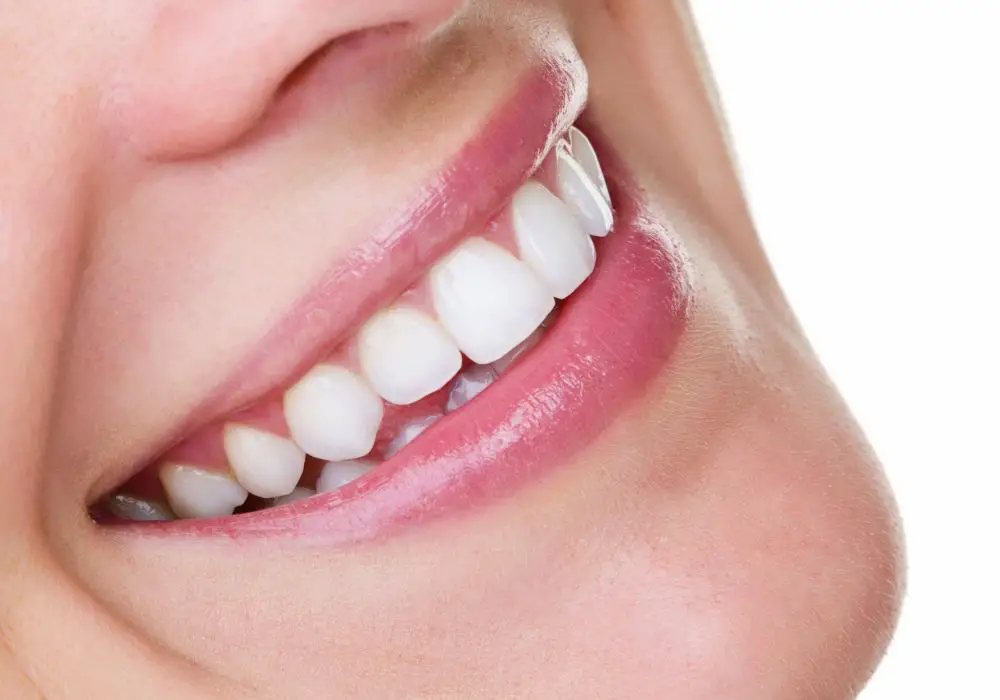
Gum disease is a major oral health issue that can also contribute to dental insecurities in some ways. Advanced gum disease causes gums to recede or shrink back, which exposes more of the tooth surfaces. This can make teeth appear much longer and more yellow.
Receding gums also expose thin, vulnerable root surfaces. These exposed roots have a darker, yellower color that looks unsightly compared to the white enamel crown surfaces. Exposed roots also put teeth at much higher risk for sensitivity, decay, and breakdown.
Gum disease must be treated with deep cleanings and improved oral hygiene to prevent further recession. But any gum recession that has already occurred can’t be reversed. This can leave us feeling like our smile will never look the same again.
5. Missing Teeth
Missing one or more teeth is also very common, but has a major impact on dental appearance and function. Teeth may be missing due to decay, gum disease, injury, or simply failure to replace congenitally missing teeth.
Gap from missing teeth negatively alter the look of our smile. It affects the symmetry and completeness of the teeth, making us look like we have incomplete or imperfect teeth. This makes us far more self-conscious about freely smiling and affects our confidence.
Beyond appearance, missing teeth also affect eating, speech clarity, and put more strain on remaining teeth. While dentures and bridges are treatment options, they feel and function much differently than real teeth. Dental implants provide the closest replacement, but are expensive. These solutions don’t fully restore our confidence and leave us wishing for our natural teeth.
6. Dental Work and Braces
Dental work like braces, retainers, bridges, implants, and crowns often improve the look and function of our teeth. But having noticeable dental work can also contribute to feeling insecure and self-conscious about our teeth.
Even subtle dental work draws attention to our teeth and makes us feel that our natural smile needed correction or help. We may recall how our teeth looked before the dental work, leaving lingering insecurities.
Dental work also feels different in our mouths than natural teeth. Removable devices like dentures and retainers must be taken out and cleaned daily. Permanent dental fixtures may feel smooth and unfamiliar compared to our natural tooth surfaces. Being able to sense differences in our teeth keeps the insecurities alive.
Psychological Effects on Self-Esteem
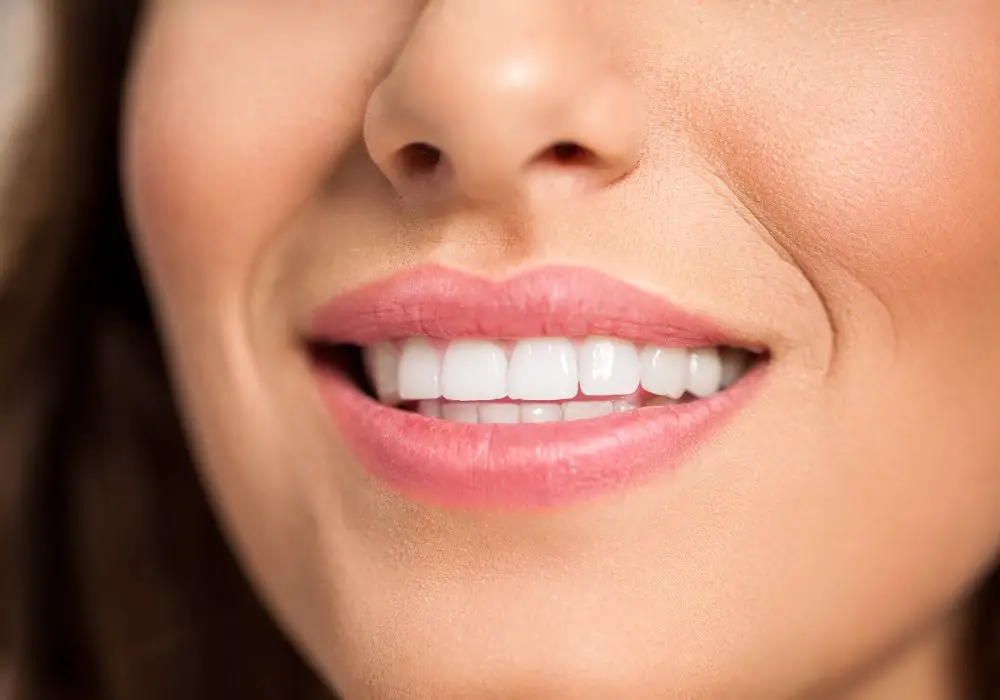
Having significant insecurities about our teeth can seriously impact our self-esteem, self-confidence, and psychological wellbeing. Here are some of the common effects that dental insecurities have:
Avoiding Smiling and Laughing Openly
Feeling insecure about our teeth often causes us to avoid freely smiling and laughing. We may hold a hand over our mouth when laughing or only smile with our lips closed. This prevents people from seeing our teeth and perceived flaws. But avoiding smiling also takes away from social interactions and prevents us from openly expressing joy.
Increased Social Anxiety
Dental insecurities feed feelings of social anxiety in situations where our teeth will be visible. We might feel anxious about public speaking, job interviews, photos, and other events where we’ll talk or smile. We may obsess over how our teeth look from different angles or in certain lighting. This anxiety impairs our ability to be present and comfortable in important life moments.
Withdrawing Socially
To avoid feeling anxious and self-conscious about our teeth, we may start withdrawing from social situations. We turn down invitations, avoid going out with friends, and retreat from opportunities to connect with others. This social isolation leaves us feeling lonely and disconnected.
Hesitance to Speak
Insecurities may cause us to feel hesitant to speak or participate in conversations. We keep responses short or cover our hand over our mouth when talking. Feeling like we need to hide our teeth prevents us from fully engaging in discussions or expressing our thoughts and opinions.
Embarrassment and Shame
Feeling like our smile or teeth are extremely flawed can lead to profound feelings of embarrassment and shame. We may replay social interactions over in our heads, criticizing how our teeth looked. Negative self-talk fuels the shame and embarrassment when we imagine how others perceive our smile.
Low Self-Worth
Dental insecurities can chip away at overall feelings of self-worth and self-love. We zero in on our perceived dental flaws, letting them dominate our self-image. Thoughts like “My smile is ugly” or “No one could be attracted to me” lower our self-perception. Teeth issues make us feel undeserving of happiness and connection.
Impacts First Impressions
Having insecurities about our teeth affects the confidence we exude when meeting people for the first time. We may avoid smiling initially or seem distracted worrying about how our teeth appear. This prevents us from coming across as friendly, approachable, and self-assured when making important first impressions.
Heightens Other Insecurities
Existing insecurities about our appearance or likeability tend to heighten when we also feel insecure about our teeth. Negative thoughts spiral as we become hyper-focused on multiple physical flaws. Feeling insecure about our teeth also lowers confidence in other traits we have to offer like intellect, talent, and personality.
Contributes to Depression
Chronic dental insecurities and associated social withdrawal, isolation, and low self-worth take a toll on mental health over time. Ongoing shame and embarrassment about our teeth can evolve into depression in some individuals.
Impacts Overall Wellbeing
All of these psychological effects compound to lower overall wellbeing. Insecurities about our teeth leave us distressed and make it hard to feel content and satisfied with our lives. We have a hard time fully enjoying social connections, pursuing goals, and feeling deserving of opportunities. Resolving these dental insecurities becomes critical for improving quality of life.
Tips for Overcoming Dental Insecurities

While having insecurities about our teeth is so common, there are ways we can start working to overcome them. It takes effort and commitment, but developing more confidence in your smile is possible. Here are some tips for managing dental insecurities:
Seek Professional Care
If you have significant insecurities about your teeth, the first step is booking an appointment with your dentist. Explain your concerns to them and ask for their objective opinion about your oral health and appearance. Dentists have seen every dental issue imaginable, so it can help put your insecurities in perspective.
Your dentist can also go over options that may improve the look of your teeth, whether that’s teeth whitening, braces, or cosmetic treatments. Getting a professional evaluation provides direction forward.
Improve Oral Hygiene
Diligent oral hygiene helps minimize tooth flaws by keeping teeth clean and stains at bay. Meticulous brushing and flossing removes plaque that damages enamel. Use whitening toothpaste and avoid stain-causing foods and drinks. Getting regular dental cleanings also brightens your smile.
Practicing excellent hygiene ensures your teeth always look their absolute best. When flaws feel minimized, you’ll gain confidence.
Explore Cosmetic Dentistry
For dental issues like severe discoloration, crookedness, or missing teeth, cosmetic dentistry can provide life-changing improvements. Popular options include:
- Porcelain veneers and dental bonding to mask flaws
- Professional teeth whitening for discoloration
- Clear aligner orthodontics like Invisalign to straighten teeth
- Dental bridges and implants to replace missing teeth
Cosmetic dentistry can be expensive and invasive in some cases. Make sure you extensively discuss options with your dentist. While costs are high, restored confidence in your smile is truly priceless.
Notice What’s Positive
When we feel insecure about our teeth, we obsess over the negatives. Make an effort to identify and appreciate what you do like about your smile. Do you have nicely shaped teeth? White spots that add character? Perfectly fine looking teeth from a distance? Noticing positives helps shift your mindset.
Smile More
One of the most effective ways to overcome dental insecurities is to simply smile more. It may feel unnatural at first, but practice smiling at yourself in the mirror or in selfies. Smile widely in conversations with friends. Smiling activates neural pathways associated with joy and confidence.
The more you smile, the more confident you’ll become with the way your smile looks. Others will also respond positively to seeing you smile, further reinforcing your progress.
Talk About Your Insecurities
Confiding in close friends or family members about your dental insecurities can provide emotional relief. Often our fears are exaggerated in our heads. Getting an outside perspective from someone you trust may help you view your teeth more rationally.
If dental insecurities are severely impacting your self-esteem and mental health, seeing a therapist could also help. Talking through your thought patterns, sources of shame, and techniques to improve self-talk are benefits of therapy.
Take Your Time with Changes
Improving major dental flaws often requires extensive time and treatment. For example, braces take years to fully straighten teeth. Don’t get discouraged by slow progress. Stick with your treatment plan and focus on celebrating small improvements along the way.
With veneers and implants, it also takes time to adjust to the feel of artificial teeth. Be patient with this adjustment period. Improvements to your smile and confidence accrue with time.
Prioritize Overall Wellness
Make dedicated efforts to improve your overall physical and mental wellbeing, beyond just your teeth. Focus on getting healthier through diet, exercise, and sleep habits. Pick up hobbies that bring you joy. Make time for relationships. When you feel balanced and fulfilled in other areas, you’ll feel less defined by dental insecurities.
Conclusion
Insecurities related to our teeth are incredibly widespread, but can seriously impact our self-esteem and wellbeing when left unaddressed. Crookedness, discoloration, damage, and missing teeth are common causes of dental self-consciousness based on societal pressures regarding dental appearance.
Working to overcome dental insecurities requires professional care, cosmetic treatments, shifting mindsets, and cultivating self-love. While insecurities may always linger, boosting confidence in your smile is possible. Focus on oral health, smile more, lean on your support system, and be patient with the process. You deserve to feel comfortable and confident sharing your smile, whatever it looks like.
Frequently Asked Questions
How do I know if my insecurities about my teeth are normal?
It’s quite normal to have some minor insecurities about your teeth, whether it’s wishing they were a bit whiter or perfectly straight. But if you have severe anxiety about showing your teeth, avoid smiling entirely, or feel deep shame, then professional help is recommended. Your dentist or a counselor can help determine if your dental insecurities are impacting mental health.
Will getting my teeth professionally whitened damage them?
As long as performed correctly, professional whitening is generally safe for your enamel. In-office whitening uses a special light and higher peroxide concentration under guidance of your dentist. This allows dramatic lightening safely. Just avoid over-whitening and sensitivity should be minimal. Always consult your dentist first.
How can I talk to my parents about getting braces?
Prepare for the conversation by researching orthodontic options and costs in your area. Make a list of reasons you want braces like improving jaw alignment or closure of gaps. Explain how you believe braces will boost your confidence. Discuss ways to make affording braces feasible like payment plans. Presenting a thoughtful argument will demonstrate you have seriously considered this.
Can whitening toothpaste actually change my natural tooth color?
Whitening toothpastes can help remove some minor stains from coffee, wine or smoking. But they cannot alter your natural tooth shade. Whitening pastes rely more on abrasives to scrub off surface stains. For noticeable color change, professional in-office whitening or custom whitening trays from your dentist are necessary.
How can I find out if I grind my teeth at night?
Symptoms like sore jaws in the morning, headaches, and tooth sensitivity suggest you may grind your teeth (bruxism). But your dentist can definitively tell by looking for signs of wear on your teeth and ordering sleep studies. Grinding requires a special night guard from your dentist to prevent tooth damage and relief symptoms. Tell your dentist if you suspect teeth grinding.
I hope this expanded and comprehensive article helps shed light on this complex issue of dental insecurities. Please let me know if you would like me to expand on any part further or have additional questions!

